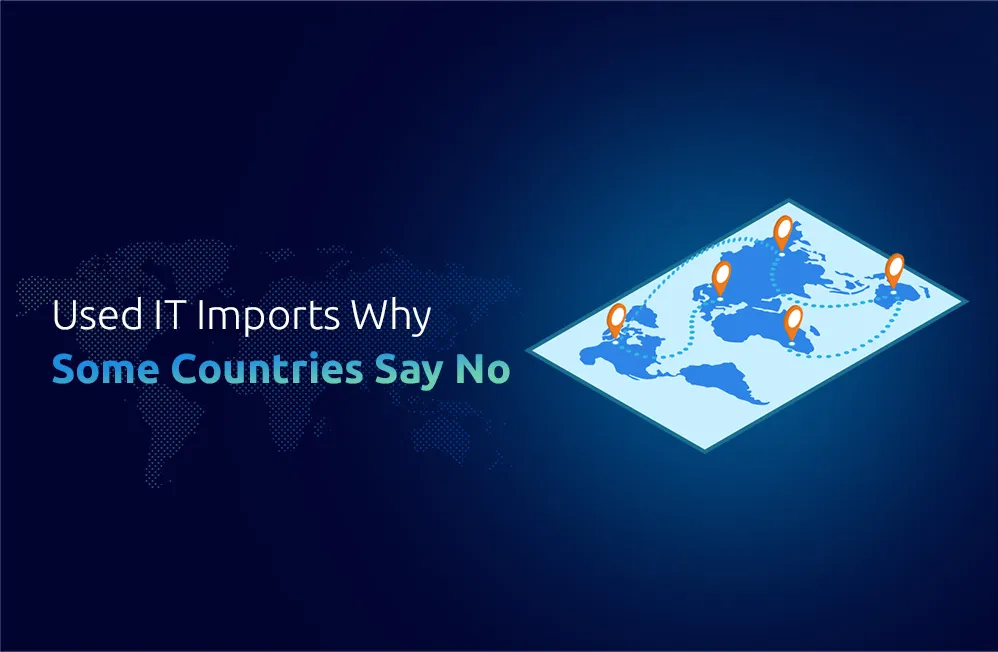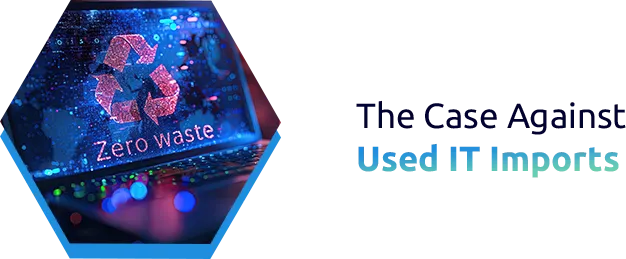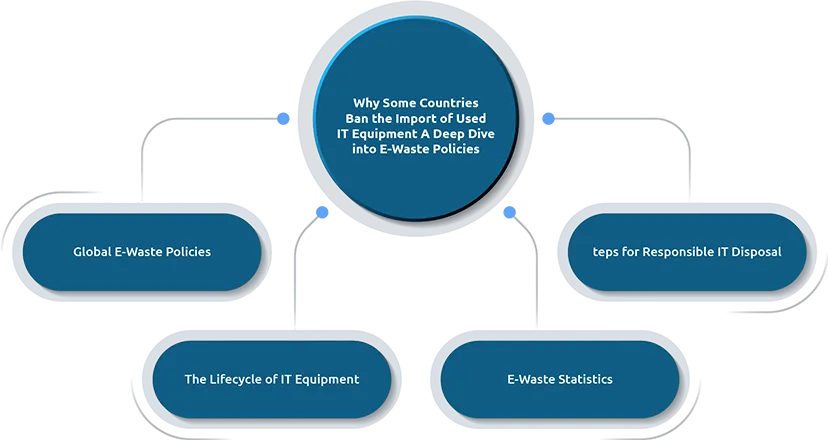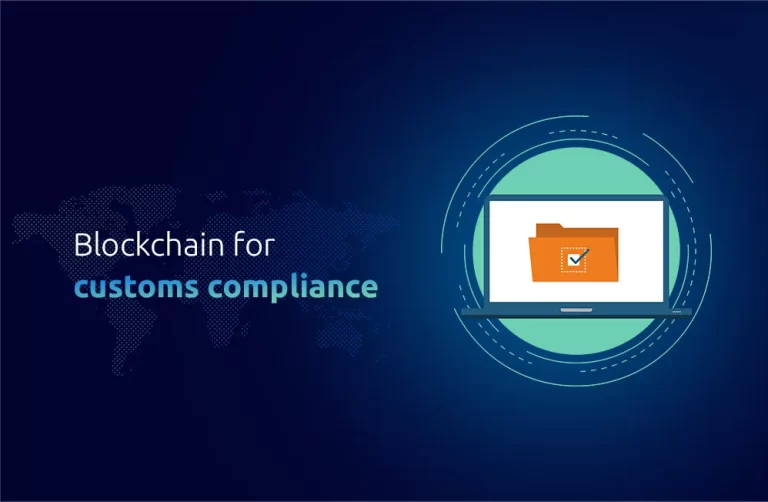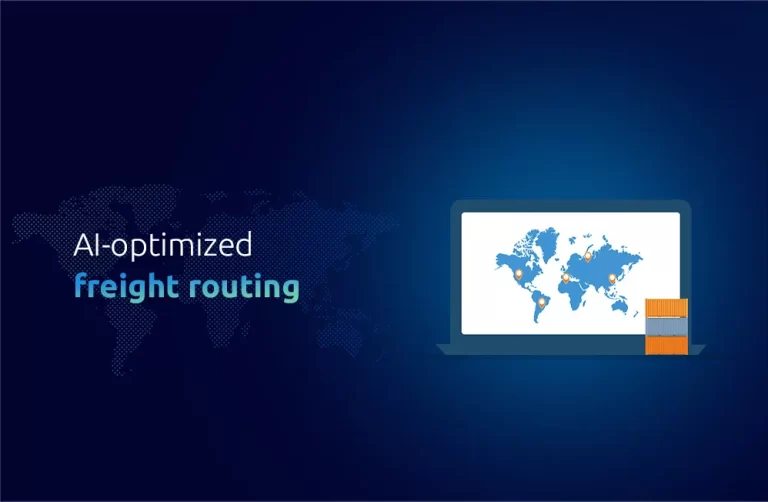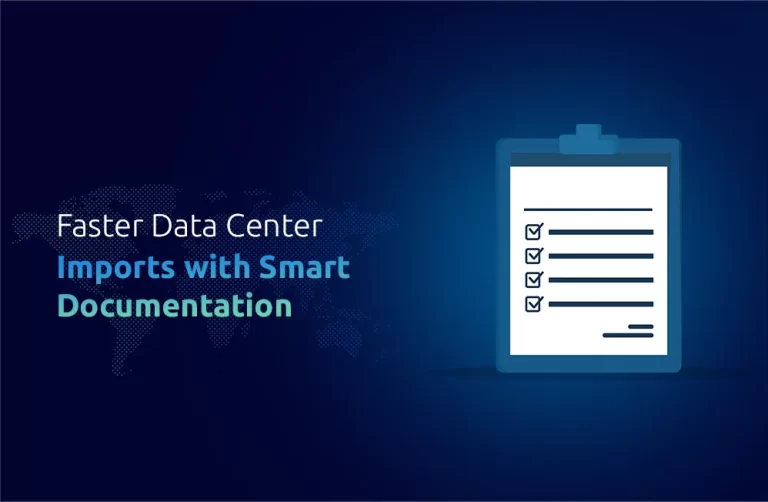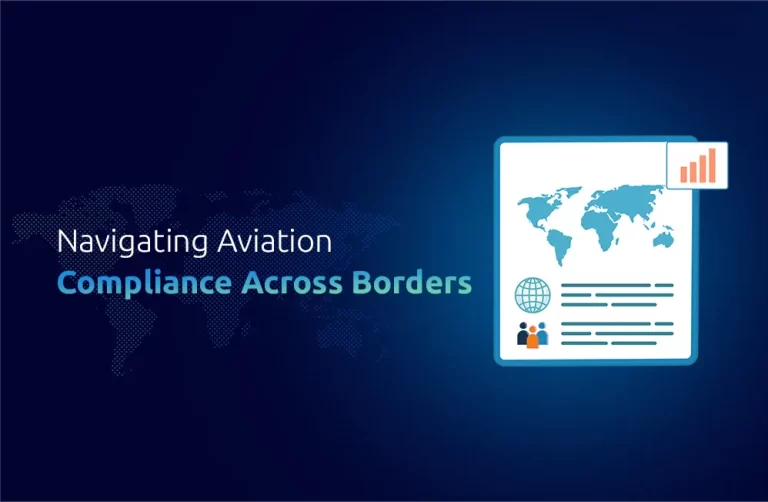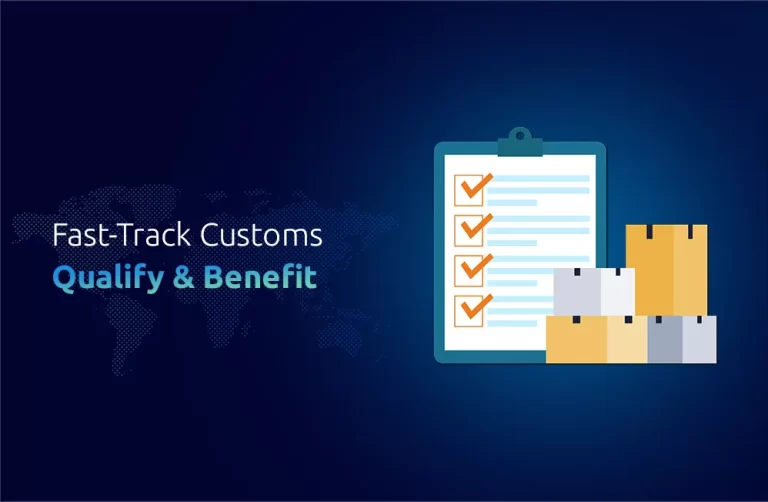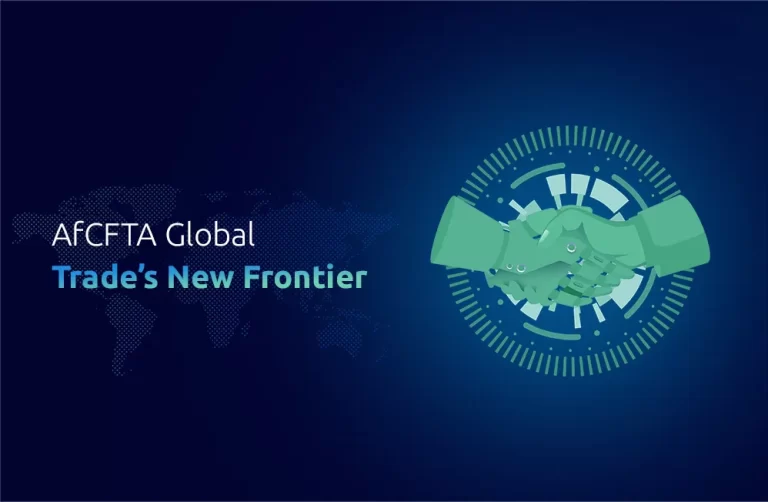Insight
The tech landscape is advancing rapidly, as is the world trade of IT equipment; in particular, the trade of used equipment is becoming more complex. Throughout the world, governments urge the recycling and reuse of technology, but concerned about climbing e-waste, they have made strict bans on importing used IT equipment. The e-waste policies are important for businesses involved in heavy international trading in aviation, automobiles, it/data centers, medical equipment, etc. The following article will discuss why these bans exist and how companies can abide by them while not running afoul of international trade regulations.
What is E-Waste?
Electrical waste, together with electronic waste, when discarded, constitutes E-waste. Hardware devices classified as electronic waste in the IT sector consist of surplus computers and servers, retired networking equipment, and all obsolete electronic products. Rising technology use worldwide has massively increased e-waste production, reaching millions of tons yearly. Countries now experience escalating difficulties regarding proper environmentally friendly electronic waste management.
Environmental and Health Concerns
Used IT equipment releases dangerous hazardous substances ranging from lead to mercury to cadmium that threaten human wellness and environmental health when disposed of improperly. Soil contamination, water pollution, and health problems emerge when e-waste is discarded improperly because it releases toxic substances. Implementing rigorous environmental policies and public health preservation measures leads countries to forbid the import of used IT equipment to block potential safety hazards.
Lack of Recycling Infrastructure
A sufficient recycling infrastructure does not exist in all countries that manage used IT equipment. E-waste recycling methods exist properly in developed nations. Still, developing nations face shortfalls in their ability to safely manage used electronics due to a lack of resources and technology and regulatory shortcomings. The import of used IT equipment in these areas causes toxic waste. In contrast, some waste ends up in landfills or through burning practices, thus leading to substantial environmental destruction.
Preventing the Dumping of Obsolete Technology
Some nations maintain rigid import enforcement to stop the practice of dumping unused or malfunctioning IT equipment. The imported used IT equipment often reaches developing nations without regulation systems thus resulting in the arrival of old devices with no proper functioning abilities. The dumping of electronic waste leads numerous countries to create import restrictions for used information technology gear to stop becoming destinations for old electronics.
Compliance with International E-Waste Regulations
The worldwide increase in e-waste awareness has prompted many nations to follow international agreements for electronic waste reduction in their policy development. The Basel Convention is a global treaty that manages hazardous waste movement between international borders. Countries that join the Basel Convention must ensure e-waste remains within their borders unless these waste materials have authorized recycling facilities in receiving nations. The implementation of these regulations led certain nations to prohibit the entry of used IT equipment because it protects them from inadvertent international law violations.
Economic and Resource Protection
Certain countries implement restrictions against the entry of used IT equipment since it defends their domestic manufacturing sector and natural resources. Countries restrict used electronics imports as the practice negatively affects their domestic manufacturing sector when improper recycling of this equipment occurs. The ban on importing used IT equipment will promote local recycling businesses and maintain essential resources by reducing their loss during inadequate disposal practices.
Impact of E-Waste Policies on Businesses
Businesses that import IT equipment face important difficulties because of these bans. The smooth operation of businesses depends on proper e-waste regulation navigation, which helps them avoid possible enforcement action fees. Companies handling medical, aviation, automobile, and IT/data centre equipment must verify that imported used equipment meets destination country requirements. Companies must understand the unique regulations governing the import of used IT equipment since national mandates differ between countries.
Experienced logistics partners who grasp e-waste guidelines serve as an effective method to tackle the introduced challenges. The engagement of professional partners enables businesses to generate all required documentation together with notifications and permits for equipment shipment thus reducing the risk of customs inspections leading to delays or penalties.
How to Comply with E-Waste Regulations
Companies must follow several fundamental requirements to follow e-waste laws. Businesses must study the destination country regulations since they determine if a certification process exists for recycling and disposal services and if you can import particular equipment. Businesses that work with customs experts can easily handle their customs procedures because the experts secure all needed paperwork and authorization documents. Businesses need responsible e-waste recycling operations, so they should select certified facilities that apply domestic and international recycling standards. To qualify for the import or export of used IT equipment to countries, business owners need to check that their products function properly and have the potential for reuse or refurbishment because receiver nations tend to favor such equipment. Consulting with legal professionals enables businesses to understand and follow e-waste legislation, preventing potential offenses and penalties.
Did You Know,
In 2019, the world produced 53.6 million metric tons of e-waste, which may climb to 74.7 million metric tons by 2030, as per the United Nations.
Conclusion
As the threat of e-waste grows, so must full compliance with global e-waste regulations. Importers of used IT equipment who ship through trusted logistics providers like One Union Solutions can guarantee compliance with international regulations and avoid costly penalties for violations. It helps businesses navigate complexities across international and regulatory requirements without compromising sustainability initiatives.
FAQs
1. What drives multiple nations to prohibit the entry of old information technology equipment?
Ans: Countries implement restrictions against used IT equipment imports because they fear the combination of e-waste and environmental harm, health dangers, and insufficient waste management capabilities.
2. How can I confirm my IT equipment fulfils worldwide e-waste requirements?
Ans: You should confirm compliance through local law research and team with customs brokers and official recycling centers for your equipment. Additionally, you must maintain good operational readiness so equipment stays useful for reuse.
3. What consequences does a ban on importing used IT equipment impose for nations that attempt this action?
Ans: Countries enforce penalties through fines, delays in shipments, and goods seizure followed by possible legal consequences according to their specific regulations.
4. Does the current legislation regarding electronic waste affect my supply chain structure?
Ans: E-waste regulations slow shipping times, increase expenses, and limit entry to certain business sectors. All importers need to evaluate these regulations before handling used IT equipment imports.
5. What positive outcomes can my business gain from handling e-waste properly?
Ans: Proper e-waste management helps businesses meet legal requirements and decrease their environmental impact while offering the potential benefit of material recovery from discarded electronics.

